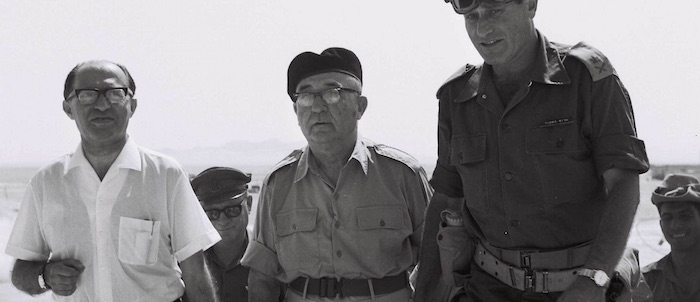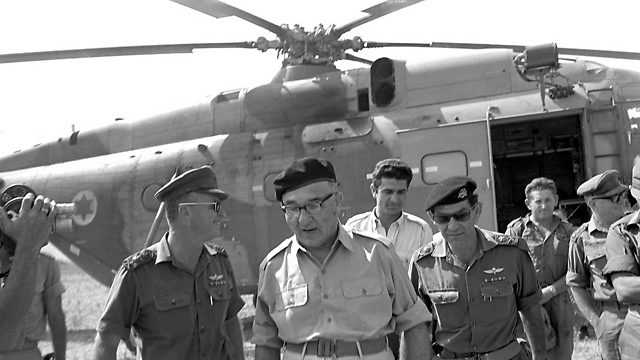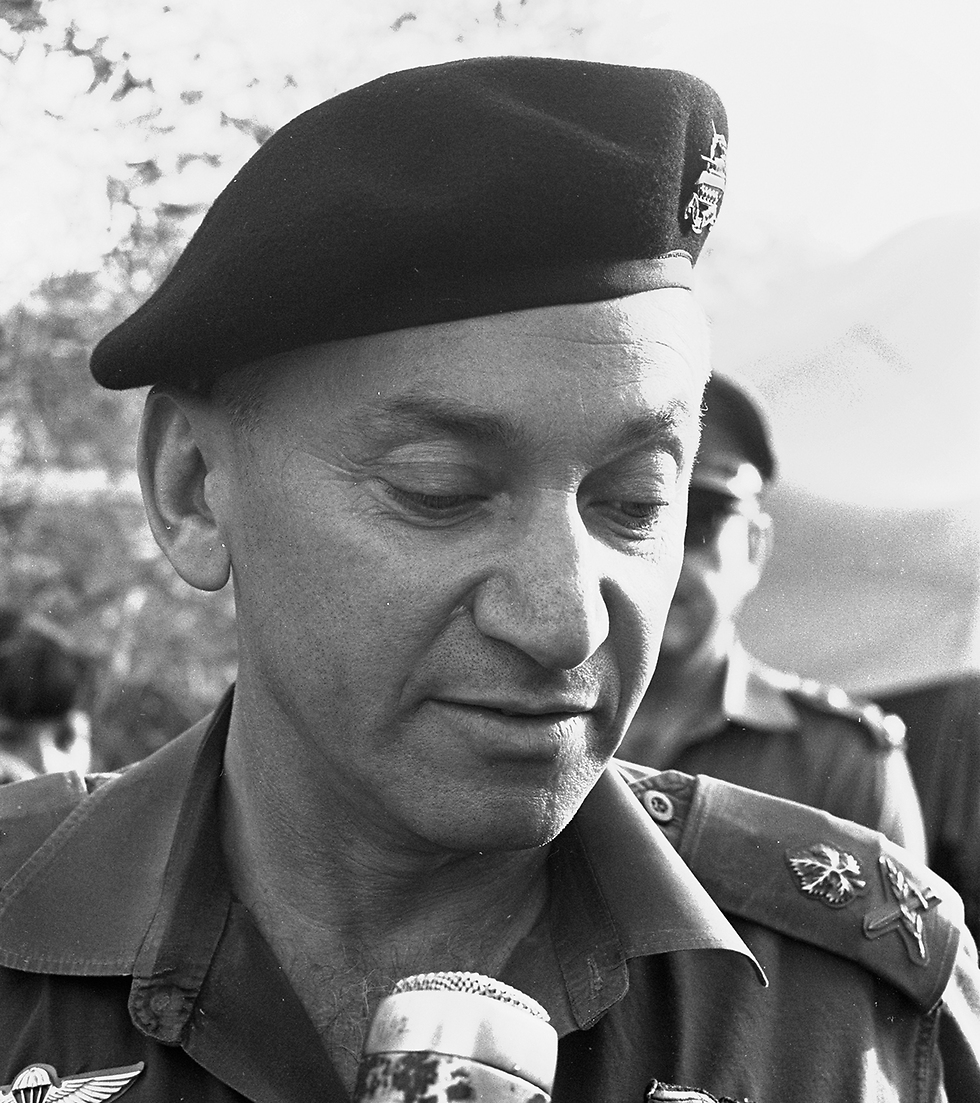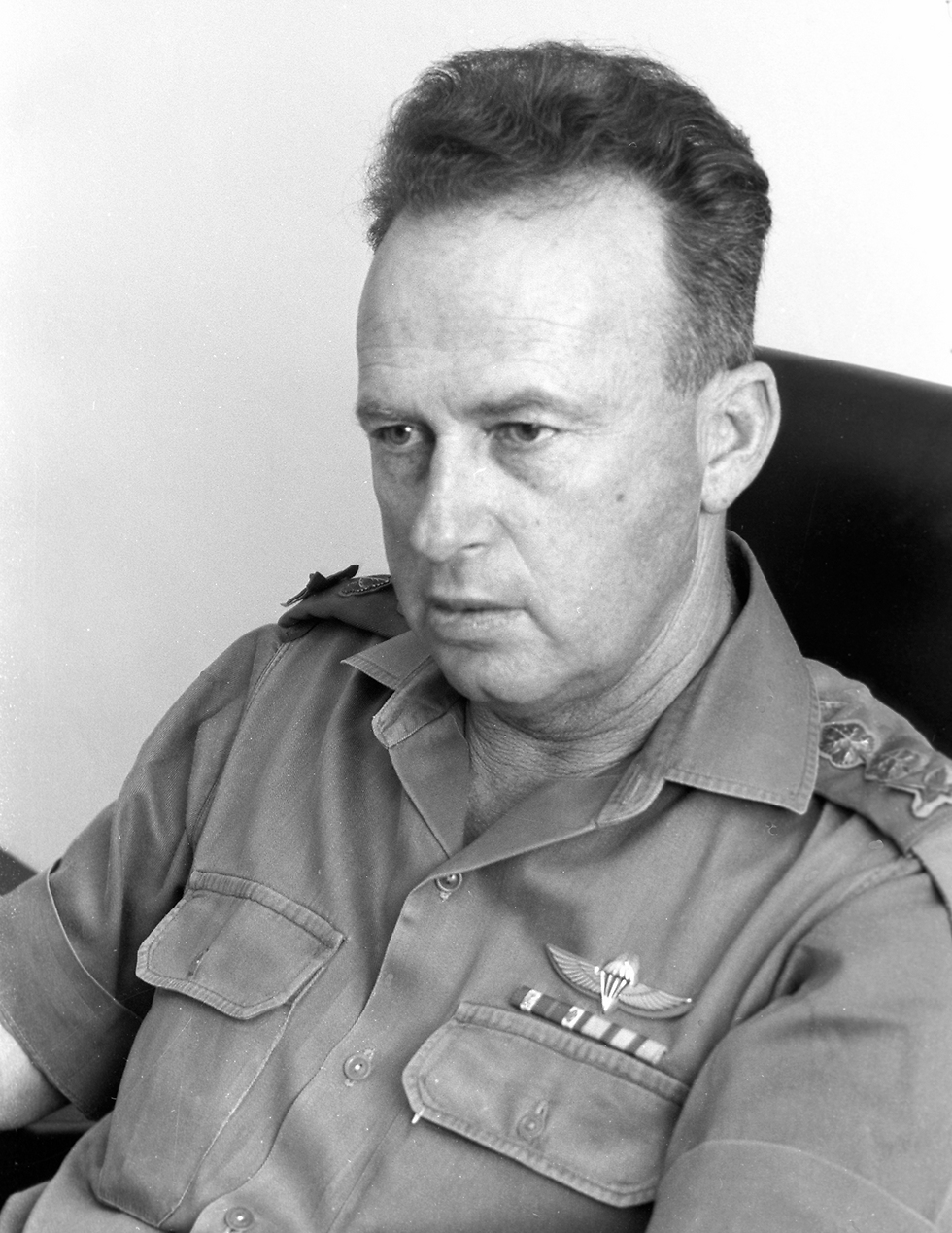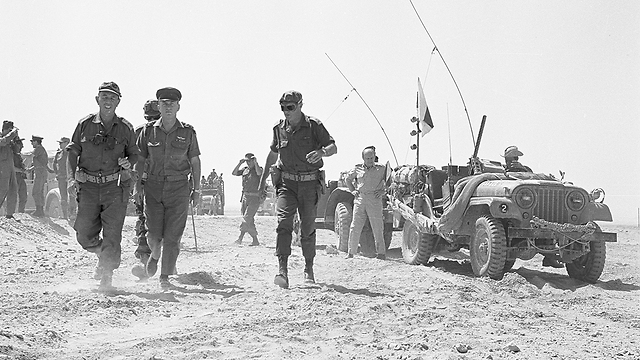Transcripts of cabinet meetings held immediately after Israel’s great military victory in 1967 focus on the country’s changed borders. Jordan claimed Western Wall belonged to Waqf, Foreign Minister Abba Eban voiced his concern for Jews living in Arab states, and Defense Minister Moshe Dayan offered a correct forecast for 1973 Yom Kippur War, saying ‘I don’t believe the Arabs will accept the current ceasefire lines.’
Minister of Religions Zerach Warhaftig of the National Religious Party (NRP) warned in one of the discussions that the demographic problem would affect Israel’s basic right to the land. He said the demographic obstacle should be tackled, but that it should not be seen as the main issue.“We must increase the number of Jews and use all possible means to reduce the number of Arabs,” Warhaftig said.
He later distinguished between the definitions adopted after the war, saying that “the West Bank lands mean liberation, and the Sinai and Golan Heights lands are occupation.” He explained that Jewish Law says new targets must not be conquered when there are unliberated targets in the Land of Israel.
“The Golan is part of the Land of Israel too,” Labor Party member Yigal Allon quickly responded.
The person who pushed for negotiations with the Arab countries was actually the NRP leader Haim Moshe Shapira, who served as interior minister at the time. Responding to Allon’s claim that “Israel plans to keep holding everything in its hands, and all the talk about peace isn’t very valuable,” Shapira said: “Informing the world that Israel doesn’t want peace is a weapon in the Arabs’ hands.”
It began as a formal discussion on the entry arrangements and responsibility for the Temple Mount compound, but the minutes reveal that three months after the Six-Day war achievement, Israel didn’t have full control of the site, as Paratroopers Brigade Commander Mordechai Gur had said, and the it was actually largely controlled by the Waqf.
At the start of the discussion, Defense Minister Moshe Dayan updated the ministers that Chief Military Rabbi Major-General Shlomo Goren had created an office for himself between the Western Wall and the yard of the mosques overlooking the Temple Mount. Goren had ruled that the Torah commentary forbids Jews to enter the Temple Mount, but in order to get into his office he had to enter the room from the Temple Mount compound.
Dayan later added that he had changed his mind and that Rabbi Goren had started praying Mincha (the afternoon prayer) near his office. “I told the chief of staff to order him to move the office to Tel Aviv. How did he get an office there? Who asked him to do that and what is he doing there? He was told to kindly return to his office. I didn’t want to evacuate the place, so I said that the Military Police would remain there and then we would see what happens.”
‘Western Wall is Waqf’s property’
The discussion revealed that the Waqf had charged one pound from each Jew or tourist visiting the mosque, while those who visited the external plaza were not required to pay.
Dayan informed the ministers that the Waqf had started sending protest letters to Israel signed by “The Jordanian Hashemite Kingdom.” In one of those letters, the Waqf protested that the gate had been seized. “Give us back the gate, because the Western Wall is the property of the Waqf.”
Menachem Begin said that during his visit to the Temple Mount, he saw how Jewish visitors were removing their shoes and the women were covering their arms and heads with handkerchiefs that had been hung on the wall beforehand. “I wasn’t happy when my wife placed it on her shoulders, and I gave her my coat. We have to influence our girls a bit, so they won’t go there with trousers. It greatly offends them, especially when the girl is beautiful,” Begin said, suggesting that the protest letter be returned to the Waqf.
Moshe Dayan: Against Palestinian state
Despite the security provided by the victory to the small state that had become a big winner, the leaders were uncalm. The ramifications of the border changes, as well as the events that took place after the war—like the sinking of the INS Eilat destroyer—infiltrated the discussions. Decades have passed since those discussions, but some have yet to be cleared for publication.
“I don’t believe the Arabs will accept the current ceasefire lines,” Defense Ministry Dayan said in a discussion held December 26, which later turned out to be a correct forecast for the Yom Kippur War. “Under no circumstances will Egypt agree that we permanently sit on the eastern bank of the Suez Canal. Syria won’t see the line we’re sitting on as a basis for an agreement either. Syria never wants to make peace on any line, but it won’t see the Golan Heights line as a borderline, with all our explanations. Jordan won’t see the current border as an acceptable line either.”
Concern for Jews in Arab states
On August 20, 1967, the Ministerial Committee on Security Affairs held a discussion on the Jews in Egypt and on ways to speed up their immigration to Israel. foreign Minister Abba Eban said there were some 2,500 Jews in Egypt, 1,500 of them in Cairo and the other 1,000 in Alexandria. He noted that some 600 Jews had been arrested when the battles broke out, including Cairo’s chief rabbi, and that all the property of the Jewish community in Cairo had been confiscated within several days.
Eban added that the situation had become increasingly difficult for the Jews of Iraq, Lebanon, Libya, Syria, Morocco and Tunisia as well. “There’s real hunger in Syria,” he said. “They aren’t arrested, but they’re locked up in their homes, so they naturally become very poor.”
Begin suggested that the foreign minister send a telegram to the United Nations secretary-general and ask him to help the Jews living in Arab countries.
Efforts to free prisoners
On October 1, 1967, the Ministerial Committee on Security Affairs and the Civil Disobedience Committee discussed a prisoner exchange deal with Egypt, and Dayan noted that a letter had been received from the POWs’ parents.
“We define the guys and the girl held in an Egyptian jail as ‘prisoners of Zion.’ It sounds nice, but it’s inaccurate,” said Minister Yigal Allon. “Those are our security people, who accepted our order or offer to volunteer and received professional training in Israel. They started off in Israel, earned the ranks of officers and were sent on action. The action may have been unsuccessful, but it’s not their responsibility.”
Eventually, the government decided to postpone the prisoner exchange in a bid to link the deal to the Lavon Affair detainees, and the soldiers’ parents were told that it had been postponed by three months in an attempt to get France, Italy and the pope involved.
Dilemma following INS Eilat sinking
On October 21, 1967, the Israeli Navy suffered a heavy blow. The INS Eilat destroyer was attacked with Egyptian missiles while sailing in the Port Said area. Forty-seven crewmembers were killed and 91 were wounded. The event became an important milestone in the history of the State of Israel, the IDF and the Israeli Navy in particular. The Ministerial Committee on Security Affairs convened the following day, after learning that 32 people had been killed and 15 had gone missing.
The ministers convened at Dayan’s office in Tel Aviv. The atmosphere was difficult and tense. There was a strong need to come up with a proper response, but it was clear that the right time and place had to be found.
“It’s a disaster for dozens of families and a blow for us. We lost a destroyer,” Dayan admitted, clarifying that “we have no weapon parallel to these missiles. If Egypt launches these missile, they will have the upper hand.”
Eshkol: We’ll respond on water
IDF Chief of Staff Yitzhak Rabin, who was asked to propose targets for an attack, rejected the option of targeting the Egyptian navy. “The submarines and the destroyers are in Yemen. We have no access there,” he said.
Rabin was aware of the level of the Air Force and suggested an artillery attack on the refineries. He gave up the option of targeting old vessels in Port Said, which were anyway out of service after being hit in previous bombardments, and rejected a strike in Alexandria, where the Egyptians were on a heightened state of alert.
Defense Minister Dayan was in favor of immediate action, but Prime Minister Eshkol appeared hesitant during the meeting. “With all my desire to conclude, I wouldn’t rush to conclude that the tendency is to respond,” he said.
Rabin suggested targeting the refineries with artillery and setting them on fire. This time, Eshkol replied firmly: “We were beaten at sea and we will respond on the water.”
Begin was in favor of an immediate response. “We are below the minimum,” he said. “We must be cautious concerning our planes. I would very much like to see Port Said being hit. That’s where the missiles came from.”

